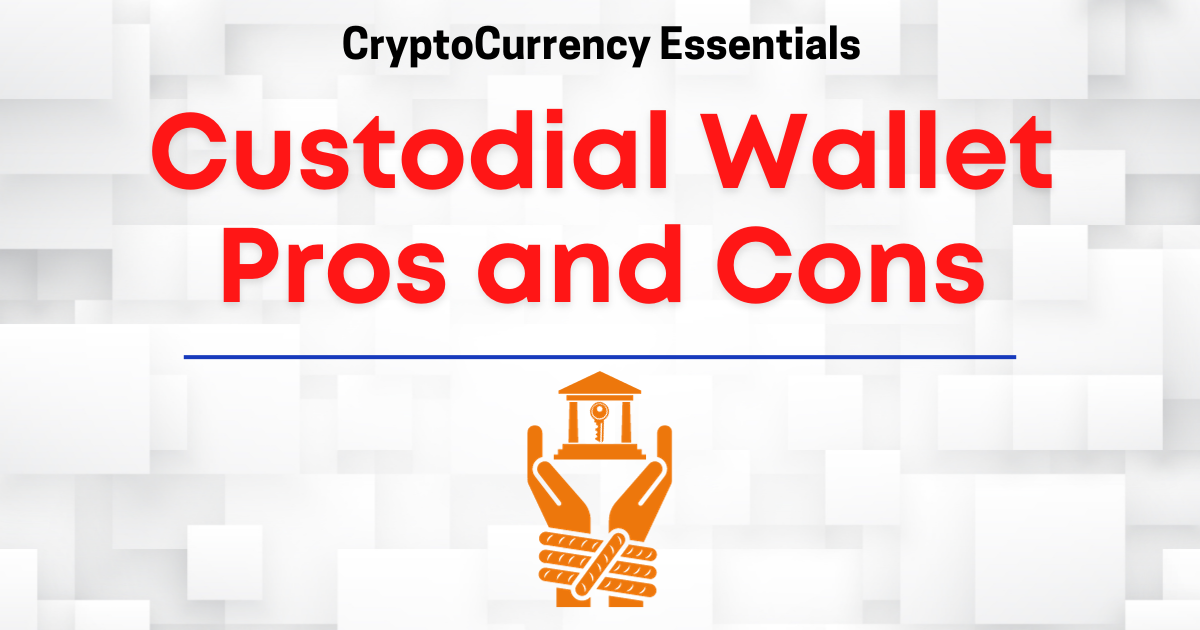
Overview
Cryptocurrency exchanges serve as convenient on and off ramps for users. These services allow people to trade fiat currency (such as dollars, euros, or yen) for cryptocurrencies, or to trade between various digital assets. These exchanges often serve a second function — as custodial wallets. Most major exchanges will allow users to store digital asset balances, and send/receive them on the blockchain. There are a number of pros and cons to storing digital assets on custodial exchanges.
Pros of Custodial Wallets
The major pro of using custodial wallets is simply ease-of-use. There are several advantages to storing and using cryptocurrencies via exchanges when it comes to the user experience.
The first is that the security experience is familiar for most users. Custodial wallets feature username and password based logins with 2 factor authentication. This login experience is the same as many other popular web applications such as social media sites, email, and bank accounts. Familiarity with security practices increases the likelihood users will avoid costly mistakes, especially when new to a domain like cryptocurrency.
As well, using an exchange wallet offers all functions cryptocurrency users might want “under one roof” — they can buy and sell, trade currencies, and send and receive to external wallets. This can make tasks such as inheritance planning, transfers, and interfacing with legacy financial instruments easier.
A final advantage of exchanges/custodial wallets can be support and documentation. Exchanges are businesses, and often have dedicated support staff and quality documentation. These resources can help both new and experienced users navigate security challenges.
Cons of Custodial Wallets
Custodial wallets do have several disadvantages to self-custody solutions. The most notable is that custodial wallets reintroduce counterparty risk into the cryptocurrency experience. Counterparty risk means, simply, having to trust a third party with your cryptocurrency assets. One major advantage of cryptocurrencies is the ability to hold your own keys and therefore your own money without having to trust someone else.
Using an exchange to store assets is more similar to trusting a bank, but with less regulations and safeguards. Users are exposed to several threats — such as insolvency. Several major custodial exchanges in cryptocurrency history have dissolved or filed for bankruptcy, such as Mt.Gox, QuadrigaCX, and most recently, FTX. Exchanges also serve as large, centralized targets for hacks and theft. While many major exchanges have excellent security practices, there is always the possibility of compromise. And large repositories of user funds like an exchange are a larger potential target than individual users.
While the familiar security user experience of exchanges can be an advantage, it can also be a disadvantage if a user has poor security hygiene. If a user generates a poor quality, short, or reused password, their account may be compromised easily. Similarly, poor 2 factor authentication practices such as using SMS may lead to SIM-swap attacks and account takeover. Users that neglect their email security may find it used to initiate password resets and account takeovers.
You can learn more about cryptocurrency security by visiting https://cryptoconsortium.org/articles.
This article was written by our CryptoCurrency Essentials (CCE) Committee, with special thanks to committee member Josh McIntyre.
Disclaimer
The information presented in this article is for educational and informational purposes only. It does not constitute financial advice, investment recommendations, or any form of endorsement.
The views and opinions expressed by individuals in this article are solely those of the speakers and do not necessarily represent those of C4 or any other organizations with which they are affiliated.
The mention or inclusion of any individuals, companies, or specific cryptocurrency projects in this video should not be considered as an endorsement or promotion.
Regulations and legal frameworks around cryptocurrencies may vary in different jurisdictions. It is your responsibility to comply with the applicable laws and regulations of your country or region.
